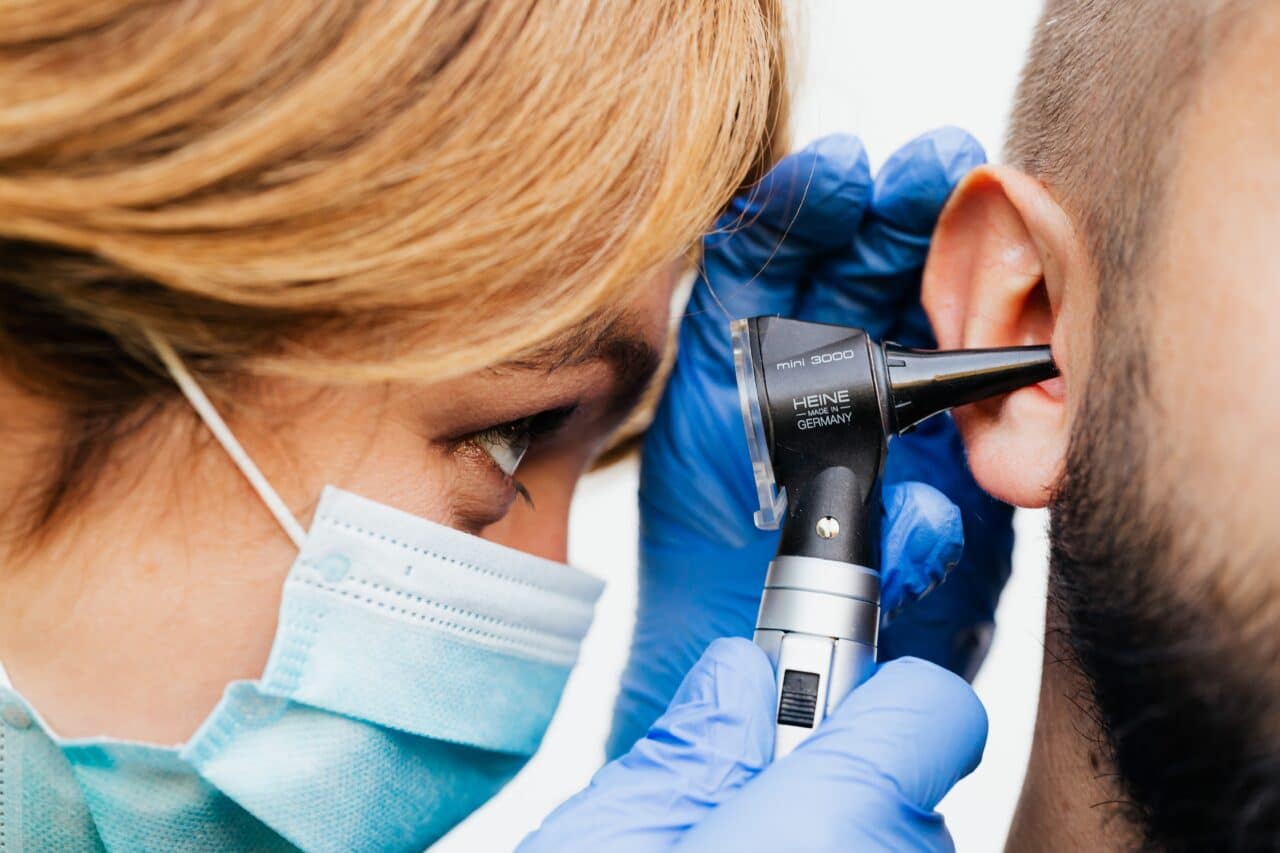Most cases of hearing loss come on gradually. However, some people experience a rapid loss of hearing, known as sudden hearing loss. If you experience this, it’s important to seek medical attention right away.
What Is Sudden Hearing Loss?

As the name suggests, sudden sensorineural hearing loss (SSHL) is hearing loss that happens immediately or rapidly over the course of several hours to days. Though it can happen to anyone, it seems to be most prevalent in older adults between the ages of 50 to 60.
SSHL often only affects one ear, but it can affect both. Some people experience a pop in their ear or experience the sensation of their ear feeling clogged as their hearing worsens.
Is Sudden Hearing Loss Serious?
Sudden hearing loss may be a sign of a serious medical condition, such as a small stroke or tumor. If you have any other concerning symptoms like weakness, loss of balance, dizziness, confusion or trouble speaking, seek help immediately, as this could mean you are having a medical emergency.
Causes of SSHL
In addition to a stroke or tumor, other causes of SSHL include viral infections, head trauma, autoimmune disorders, neurological disorders, inner ear problems and taking certain medications. Other times, no obvious cause is found.
Seeking Treatment
Some people resist seeking treatment for sudden hearing loss, assuming it’s caused by allergies or sinus problems, and try to treat the problem at home. However, even if your SSHL isn’t the result of a medical emergency, you should still make an appointment with an audiologist or primary care provider as soon as possible after the onset of your symptoms to help prevent your hearing loss from turning permanent.
According to the National Institution on Deafness and Other Communication Disorders (NIDCD), “Delaying SSHL diagnosis and treatment can decrease treatment effectiveness. Receiving timely treatment greatly increases the chance that you will recover at least some of your hearing.”
Treatment Options
Treatment for SSHL often consists of corticosteroids over a two- to three-week period. These may be administered orally or via injection into the eardrum. Your doctor will talk to you about the pros and cons of each treatment method to see which will work best for you.
Ideally, the corticosteroids reduce your inflammation and restore your hearing loss back to normal. However, in cases where treatment was delayed or SSHL is more severe, some hearing loss may be permanent.
In that case, your audiologist will go over treatment options to help improve your hearing, the most common of which is hearing aids. They will factor in the severity of your hearing loss, coupled with your daily needs, as well as style and technology preferences, to find the right pair for you.
Hearing aids will make it easier for you to process speech and sound in any environment, whether at the office, playing with your grandchildren at home or out to lunch with friends at Tommy’s Restaurant or other Hampton venues.
For more information or to schedule an appointment, call the experts at Hampton Roads ENT ~ Allergy today.
